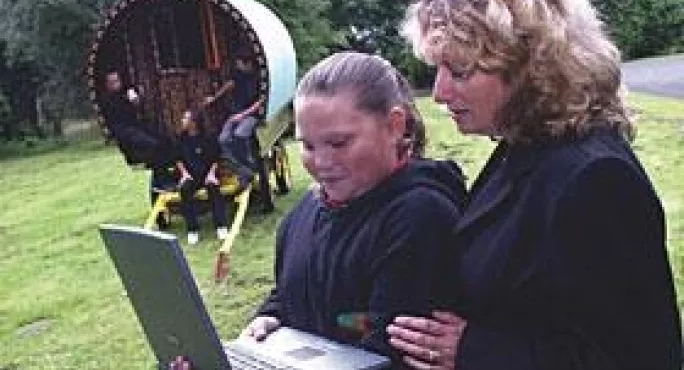Gypsy pupils move to a higher level

Experts working with vulnerable young people have welcomed efforts to improve the education of Gypsy Traveller pupils as secondary school attendance grows.
The low number of these pupils making the transition to secondaries has long been a cause for concern but the Assembly government believes the situation is improving.
Three years ago the National Foundation for Educational Research found that half of all Gypsy Traveller pupils left school after primary. But last year, eight of the 19 Welsh authorities with Gypsy Traveller populations noticed an increase in the number of children attending secondary school.
The government says this is due, in part, to specialist grants to boost attendance - worth pound;900,000 in 2009-10 - which fund lunchtime, nurture and transition clubs, support for parents and out-of-school activities.
The Assembly government is to publish a draft Gypsy Traveller strategy later this month that will include further developments on areas including education and youth participation.
But Bev Stephens, head of the Pembrokeshire Gypsy Traveller Education Service, said cultural factors remain a strong influence on families’ decisions about education.
“We have about 210 Gypsy children and a lot of their parents have got pretty horrendous school experiences,” she said. “They need their children to be with somebody they know and trust and who understands their values.”
While travelling families generally accept the family-like environment found in primary schools, secondary schools are often perceived as anathema to Gypsy culture.
“Many Gypsy parents are very, very protective of their kids and absolutely terrified of drugs and teenage pregnancy,” Ms Stephens said. “They don’t believe sex education should be taught in school and school trips can be a problem.”
Anthony Edwards of Gypsy Traveller Advocacy Wales, a group set up to give travelling families a voice, said that while there were positive role models in the community - including a girl who sits on her school council and a gypsy teacher who takes mainstream primary classes - many faced a fight even to be admitted into school.
“There’s no incentive for schools to take them - attendance records may drop, free school meals figures may go up - but there are some headteachers that go out of their way to admit them,” he said.
Mr Edwards has high hopes that the vocationally led 14-19 learning pathways will lead to a breakthrough.
“It’s about asking the learner what they want to do and that works well with Travellers,” he said. “They can do things that are of interest to them, such as construction or health and beauty.”
The new skills-based curriculum is also felt to benefit travelling pupils as it is more consistent between schools.
But Mr Edwards said even the most positive education strategies would be useless unless children knew about their most basic rights.
“Minority groups such as Gypsies won’t use mainstream advocacy,” he said. “It takes time to build up trust, particularly when many of their parents’ experience is that they were treated unfavourably or were victimised.”
Discrimination remains a concern. A survey this year by the Equality and Human Rights Commission in Wales revealed that two-thirds of people felt Gypsy Travellers were unsuitable to be primary teachers.
Ms Stephens said: “We used to lose the children from May to October, but now if they’re at college they will stay with relatives and then leave to join their family in the summer.
“I did hope that by the time we got to this generation we would get more of them to secondary school, whereas I’ve got to the point where I’m teaching the children of parents that I’ve taught. Some years we have great success, in others not so much.”
- An all-Wales national conference on Gypsy Traveller education will be held in Llandrindod Wells in October.
Toolkit for travellers
Save The Children Cymru will be compiling a toolkit for schools to help give Gypsy Traveller children a voice in their own communities.
The three-year Travelling Ahead project, beginning later this month, will give youngsters a chance to represent themselves and influence policy decisions. It also aims to set up a national forum of young Gypsy Travellers.
Keep reading for just £1 per month
You've reached your limit of free articles this month. Subscribe for £1 per month for three months and get:
- Unlimited access to all Tes magazine content
- Exclusive subscriber-only stories
- Award-winning email newsletters



